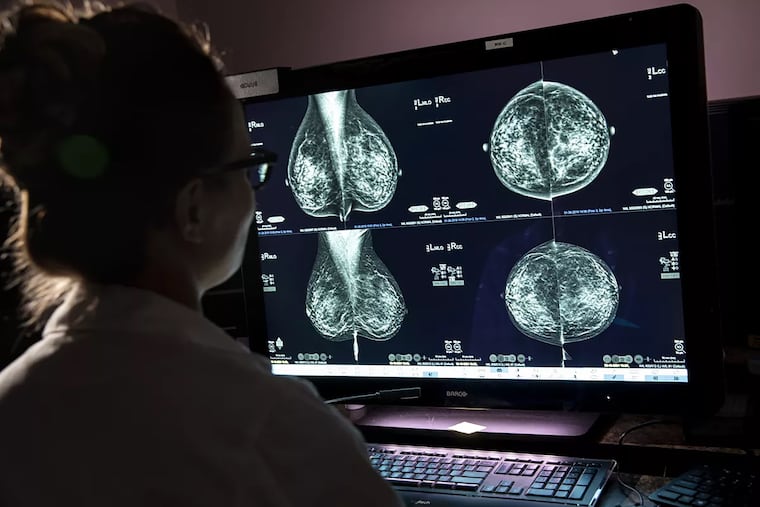The new mammogram recommendation is welcomed by doctors | Expert Opinion
The recommended lower age for mammograms is a welcome change for doctors who have long supported an earlier start to breast cancer screening.

The draft recommendation from the U.S. Preventive Services Task Force to begin breast cancer screening at age 40 is a welcome change from the prior guidance to start by age 50.
The task force’s previous guidelines said women should begin biennial mammograms and encouraged women in their 40s to discuss with their doctors whether they would benefit from beginning screening earlier. These recommendations were based on the number of false positives from mammograms, relative to the number of lives estimated to be saved. Mammograms were estimated to save lives about 1 in 1,200 cases when screening occurred at age 50 and above. When started at age 40, mammograms saved lives in an estimated 1 in 1,400 cases, according to the task force.
When a mammogram shows abnormalities in the breast tissue, patients must have additional imaging and often a biopsy to test for cancer. If no cancer is found in the year after the initial abnormal mammogram, it’s considered a false positive. The process can be stressful for patients, which is why some medical professionals have urged against early testing.
» READ MORE: Health panel recommends women get screening mammograms at age 40
But many of us in the breast cancer surgery community disagreed with the recommendation of starting screening at age 50, which is when many women who are not considered high risk have their first mammogram. Our own pro-screening thoughts aside, we find that most women express a desire to undergo screening at 40. They understand and accept there is a risk of a false-positive result and unnecessary biopsies.
The task force’s recommendation to lower the starting age for mammograms responds to a troubling trend: The rate of younger adults being diagnosed with breast cancer is on the rise. The task force now sees a greater benefit in starting screening earlier.
We think this is a positive development. But the recommendation is still for every other year screening, which many of us think should be annual.
Although most breast cancers grow slowly, we know that delays do have an effect on breast cancer survival, and the stage at diagnosis is our primary indicator of prognosis. The American College of Radiology already recommends non-high-risk patients to start at the age of 40.
At Fox Chase Cancer Center, we agreed with American College of Radiology’s recommendation and continue to endorse annual screening beginning at age 40 in average-risk women.
Richard J. Bleicher is a professor in the Department of Surgical Oncology and leader of the breast cancer program at Fox Chase Cancer Center.